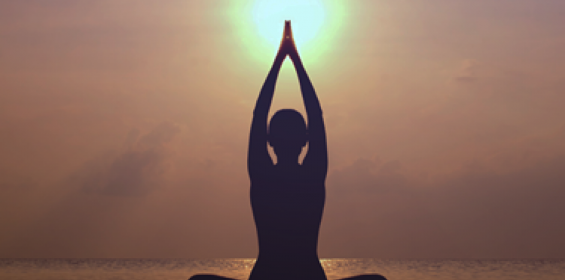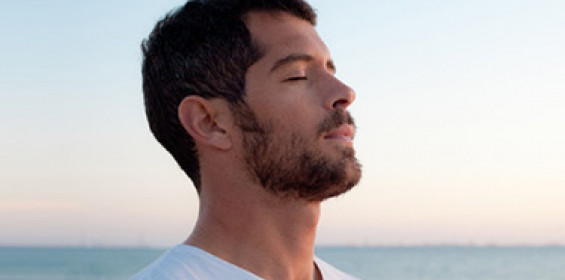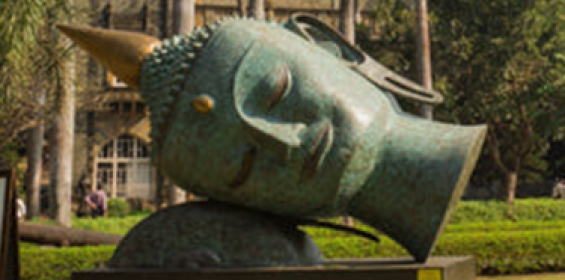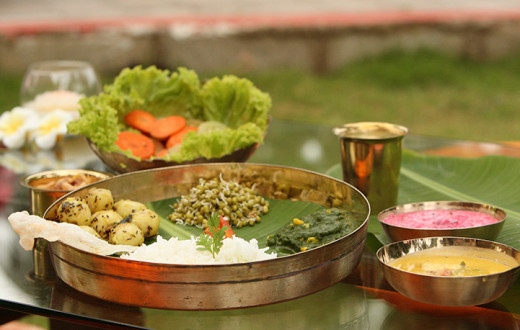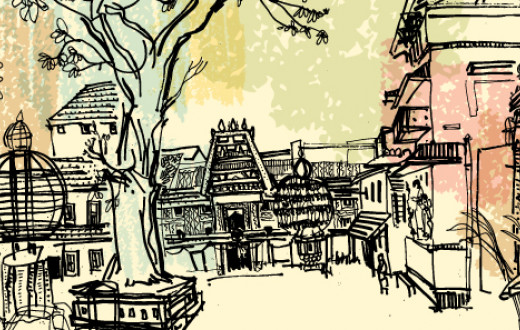I was introduced to Buddhism in a ten-day-program in Dharamshala, India in 2012, and life wasn’t the same. All the drinking, smoking and other meaningless indulges had to stop. I wanted to be a filmmaker before doing the course. I thought that was my calling. I used to think about it all the time and was even formally studying it and writing scripts to be sent to directors in Mumbai. After the course and a month of contemplation and studying more of Buddha’s words, filmmaking wasn’t a priority anymore. The teachings of Gautama Buddha, the other Buddhas and other Buddhist masters had such a profound impact on me that I wanted to devote the rest of my life following their teachings. Buddha means ‘The Enlightened One’ or ‘The Awakened One’, and while I am nowhere close to being a Buddha, I was definitely awakened to the reality - the life I had set for myself had no potential to make me happy.
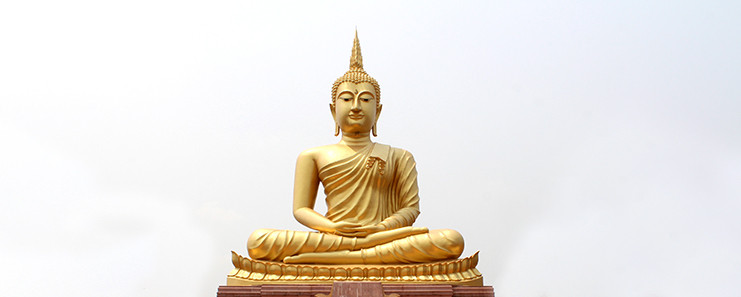
Things had to change and ever since that course, I have been aligning my life according to the Buddha’s teachings. Buddha’s first-ever public teaching was on the Four Noble Truths, and I started my journey into Buddhism by being introduced to them. I have been reading books and listening to Buddhist teachers from Sri Lanka, Tibet, India, Burma expounding on these Four Noble Truths. Every time, there’s something new and insightful to learn, and something old to unlearn. They are the foundation to any Buddhist teachings of any order or school of Buddhism.
Join a Free workshop on Yoga, Meditation and Breath
One doesn’t have to be a Buddhist to understand the profound teachings of Buddha. They are as relevant for contemplatives of other religions, the scientific community and everyone else - whether you identify as an atheist or an agnostic. There’s a path for everyone, full of joy and leads to genuine and sustainable happiness.
The foundation of Buddhism - the 4 noble truths
1. The truth of suffering (“The symptom”):
Buddha’s first noble truth is that there is suffering in the world. People think Buddhism is very pessimistic because Buddha’s teachings starts by talking about suffering. It’s not something negative or sad. Suffering exists; this is a fact. If we think about our lives for a second, even if we don’t believe in rebirth, we can easily verify this truth. The conventional suffering of old age, illness and death awaits us all. We can’t escape it. Then, there is the impermanence. We are alive now, but can we be 100 percent certain we will be alive tomorrow? Our lives are so fragile, but yet we continue to live as though we will live forever.

The next time you go through an unfortunate experience or an unpleasant sensation, no matter how intense, reflect on this truth, and become mindful of it. Mentally say to yourself, “This is suffering. This is what Buddha was talking about.” It could be the troubles in your relationship, the disputes with your manager or extra salt in your food. Just be mindful. This way you’ll become more and more aware of the pervasiveness of suffering in our existence. It will not only awaken you to the truth of our existence but also make you stop doing things that makes you sad.
The principle of dukha or suffering is one of the marks of existence. The other two are impermanence and identitylessness.
2. The truth of the origin of suffering (“The diagnosis”):
Buddha said there is a cause for all this suffering and that is our fundamental ignorance to see how things really exist. At a relative level, it is our craving and attachment for pleasure and joy, and our aversion for all

experiences we dislike. The cause of suffering is that in life sometimes we get what we don’t want, and sometimes we don’t get what we want and we are not fine with that. At a fundamental level, Buddha states the causes of suffering are our pervasive and unshaken belief in this independent and solid, ‘I, Me, Mine’ – the ego. Buddha says we are all deluded and living a lie and by reinforcing this “I” that is nowhere to be found in the body or outside the body, we are only increasing our own miseries.
3. The truth of cessation of suffering (“The prognosis”):
Buddha says there is a cure. There is an end to our suffering, and we all can get cured. We all can get free and achieve the joy and happiness that never dies. There is an end to suffering and that’s the third noble truth. This is the positive news we were all looking for.
4. The truth of the path (“The prescription”):
There is liberation from all the pains of the world, not only for us but for all sentient beings. However, that begs the question, how do we achieve the said liberation? This question brings us to the greatest and the last noble truth which deals with the path. Buddha in his infinite wisdom not only made us realize our suffering and its causes, he also laid out a detailed path to come out of this suffering. A unique path for all of us we can tread, no matter who we are or what are spiritual potential is.
By living our life ethically, by cherishing others more than ourselves, by meditation and gaining wisdom, we all can become Buddhas. There is a little Buddha in each of us, all we have to do is wake up and see it. Buddha went through all kinds of pain and struggle to liberate himself but he was successful only when he got tired of trying everything, and he finally relaxed and surrendered.
I’d like to share some news with you I still haven’t shared with anyone else. Ten days before writing this piece, I formally took refuge in Buddhism, in the Buddha, Dharma and Sangha. It’s been one of the most fulfilling moments of my life and I hope to act in accordance with the precepts I was given. I hope to forever remain in service to welfare of sentient beings and not to do anything by my speech and body that brings them harm of any kind. I aspire to act for their well-being and hope to cultivate an attitude that cherishes them more than myself. I intend to devote myself more and more towards the goal of liberation and be mindful of my every small action and their outcome.
Written by Aman Bansal

